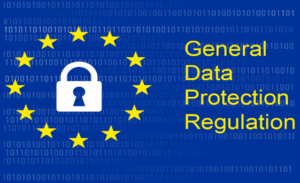What Are the 7 GDPR Data Protection Principles?
As data becomes more important in our digital world, the need for strong data protection has never been greater. In response, the General Data Protection Regulation (GDPR) was introduced in the European Union in 2018 as a key law to protect personal data. The GDPR Data Protection Principles are seven core data protection principles that guide how personal data should be processed and safeguarded. Any organization handling personal data, whether in the EU or dealing with EU citizens, must understand these principles and their role in ensuring data privacy and security. In this blog, we’ll explore the seven GDPR principles and explain why they are essential for protecting data.

1. Lawfulness, Fairness, and Transparency
Why It’s Important
The GDPR Data Protection principles of Lawfulness, Fairness, and Transparency are crucial because they ensure that personal data is collected and processed in a way that respects individuals’ rights. Lawfulness requires that data processing must have a valid legal basis, such as consent or a legitimate interest. Fairness ensures that data is used in a way that is ethical and doesn’t harm individuals. Transparency means that organizations must be clear and open with people about how their data is being used. Together, these elements build trust and protect individuals’ privacy.
Key Aspects of This Principle:
Lawfulness: The processing must be based on one of the lawful bases specified by GDPR. Like: your consent, the need to perform a contract, a legal obligation, or the legitimate interests of the controller.
Fairness: Data processing must be fair, meaning organizations should not exploit or mislead individuals about how their data will be used. Processing should not cause unjustified harm or negative effects on individuals.
Transparency: Organizations must be transparent with individuals about how their data is processed. They should provide clear and accessible privacy notices that explain the purpose of the processing, who will receive the data, and how long it will be kept.

2. Purpose Limitation
Why It’s Important
The second of the GDPR Data Protection Principles is the purpose limitation principle. It ensures that personal data is collected and used only for specific, clear, and legitimate reasons. It prevents organizations from using data for purposes other than what was originally agreed upon, protecting individuals from misuse or unexpected uses of their information. By adhering to this principle, organizations maintain trust and respect privacy, ensuring that data is only processed in ways that align with the individual’s consent and expectations.
Key Aspects of This Principle:
Purpose: When you collect personal data, you must explain why you’re doing it. For example, you need to clarify how you plan to use or share the data. If you want to use or share it for something else, you must need permission first.
Clear and Legitimate: Under GDPR, the purpose for collecting data must be clear and legitimate. This means it must be explicitly disclosed to the data subject and align with what GDPR permits. Organizations can only use data for a new purpose if they obtain separate consent from the data subject or show that the new purpose is compatible with the original one.
Data Minimization: This principle also aligns with data minimization. You should only collect or process the data needed to achieve the specific purpose for which it was collected.
Data Retention: Data should be kept only for as long as necessary to fulfill its original purpose and should be securely deleted when no longer needed.
3. Data Minimisation
Why It’s Important
Data Minimization is crucial as GDPR Data Protection Principles because it ensures that organizations only collect and process the minimum amount of personal data needed for specific purposes. This approach helps protect individuals’ privacy by reducing the amount of data at risk and limiting potential exposure in case of a data breach. By focusing on only the essential data, organizations not only comply with GDPR requirements but also build trust with individuals and mitigate risks associated with data handling.
Key Aspects of This Principle:
Adequacy: The data should be sufficient to serve the purpose for which it is processed but not excessive or irrelevant.
Relevance: Collect personal data only for specific, explicit, and legitimate purposes, and do not process it in ways that are incompatible with those purposes. For example, if a company needs to confirm your identity, they should collect only the data necessary for that purpose.
Limitation: Collecting more data increases the risk of misuse and potential harm to individuals. By collecting less data, you reduce the likelihood of data breaches and enhance individual privacy.
Enhance Trust: Individuals are more likely to trust organizations that handle only the data required for their services and respect their privacy.
4. Accuracy
Why It’s Important
Accuracy is vital because it ensures that personal data remains correct and up-to-date. Accurate data helps organizations make reliable decisions and provides individuals with fair and appropriate treatment. By maintaining accurate information, organizations reduce the risk of errors that could lead to harm or legal issues, and they fulfill their obligation to handle data responsibly and in compliance with GDPR Data Protection Principles requirements.
Key Aspects of This Principle:
Correct Data: Organizations must ensure that all personal data they hold is accurate. If they come to know that any data is inaccurate, they must correct or delete it without delay.
Regular Update: Organizations should implement procedures to regularly update personal information whenever possible. For instance, they should update customers’ contact details if they move or change their phone numbers.
Right to Rectification: You have the right to request corrections to any inaccurate or incomplete information we hold about you. We must respond to your request promptly and at no cost to you.
Data Verification: Verify the accuracy of data at the point of collection and during processing to avoid errors.
Error Handling: Establish procedures for addressing and rectifying inaccuracies promptly to prevent potential harm or misinformation.
5. Storage Limitation
Why It’s Important
Storage Limitation ensures that personal data is kept only for as long as necessary to fulfill its intended purpose. By limiting data retention, organizations reduce the risk of unnecessary exposure and potential misuse. This principle helps protect individuals’ privacy and complies with GDPR Data Protection Principles requirements by preventing the accumulation of outdated or irrelevant data.
Key Aspects of This Principle:
Retention Periods: Organizations must establish retention periods for personal data, ensuring they store it only as long as necessary to fulfill the purpose for which it was processed.
Regular Reviews: Implement processes to regularly review data to determine if it is still needed.
Data Deletion: After the retention period has passed, or the data is no longer needed, it must be deleted so that the individuals cannot be identified.
Exceptions: In certain cases, data may be kept longer to meet legal requirements, for archiving in the public interest, or for scientific, historical, or statistical research. This is allowed as long as appropriate safeguards are in place.
Clear Policies: Establish clear data retention and deletion policies to ensure compliance with GDPR and protect personal data.
6. Integrity and Confidentiality (Security)
Why It’s Important
The integrity and confidentiality principle are also known as the security principle. They ensure that personal data is protected from unauthorized access, loss, or damage. By maintaining data integrity, organizations guarantee that information remains accurate and unaltered. Ensuring confidentiality means keeping personal data secure and accessible only to those authorized to view it. These principles help protect individuals’ privacy and build trust, while also ensuring compliance with GDPR’s security requirements.
Key Aspects of This Principle:
Technical and Organisational Measures: You must implement technical security measures, such as encryption and firewalls, along with organizational measures like access controls and staff training.
Prevention of Data Breach: A company can ensure data integrity and confidentiality by taking steps to avoid data breaches, which helps protect individuals and prevents heavy fines and damaging publicity.
Data Processing Agreements: An organization must ensure that any third-party processors it uses are bound by GDPR’s security requirements through a data processing agreement.
Regular Audits: Conduct regular security audits to identify and address vulnerabilities.
Data Handling Procedures: Establish and follow strict procedures for handling, storing, and disposing of personal data.

7. Accountability
Why It’s Important
Accountability requires organizations to take responsibility for their data processing activities and demonstrate compliance with data protection laws. By being accountable, organizations ensure they implement appropriate measures, maintain transparency, and prove their adherence to GDPR Data Protection Principles’ requirements. This principle helps build trust with individuals and reduces the risk of legal consequences.

Key Aspects of This Principle:
Documentation: Organizations must document their processing activities, including the purposes, categories of data processed, and the legal basis for processing. This documentation helps establish compliance.
Policies and Procedures: Implement and follow clear data protection policies and procedures.
Data protection impact assessments (DPIAs): Where the processing is likely to result in a high risk to the rights and freedoms of individuals, a DPIA must be carried out to identify and mitigate such risks.
Appointment of a Data Protection Officer (DPO): Depending on the size and nature of an organization’s data processing activities, appointing a Data Protection Officer (DPO) may become mandatory. The DPO must then oversee GDPR compliance and act as a liaison between data subjects and regulatory authorities.
Ongoing Review and Audit of Data Processing Practices: Regular review and audit of data processing practices is required to maintain GDPR compliance and mitigate any risks or gaps in data protection measures.
Incident Reporting: Have procedures in place for reporting and addressing data breaches promptly.
Conclusion
The seven GDPR data protection principles are the foundation of the GDPR framework. Organizations must adhere to these principles when processing personal data: lawfulness, fairness, and transparency; purpose limitation; data minimization; accuracy; storage limitation; integrity and confidentiality; and accountability. Failure to comply can lead to serious legal and financial consequences. Respecting these principles is crucial for protecting individual privacy, building trust with customers and stakeholders, and ensuring data security in a digital world. Understanding and implementing these principles is essential for any organization that processes personal data.
